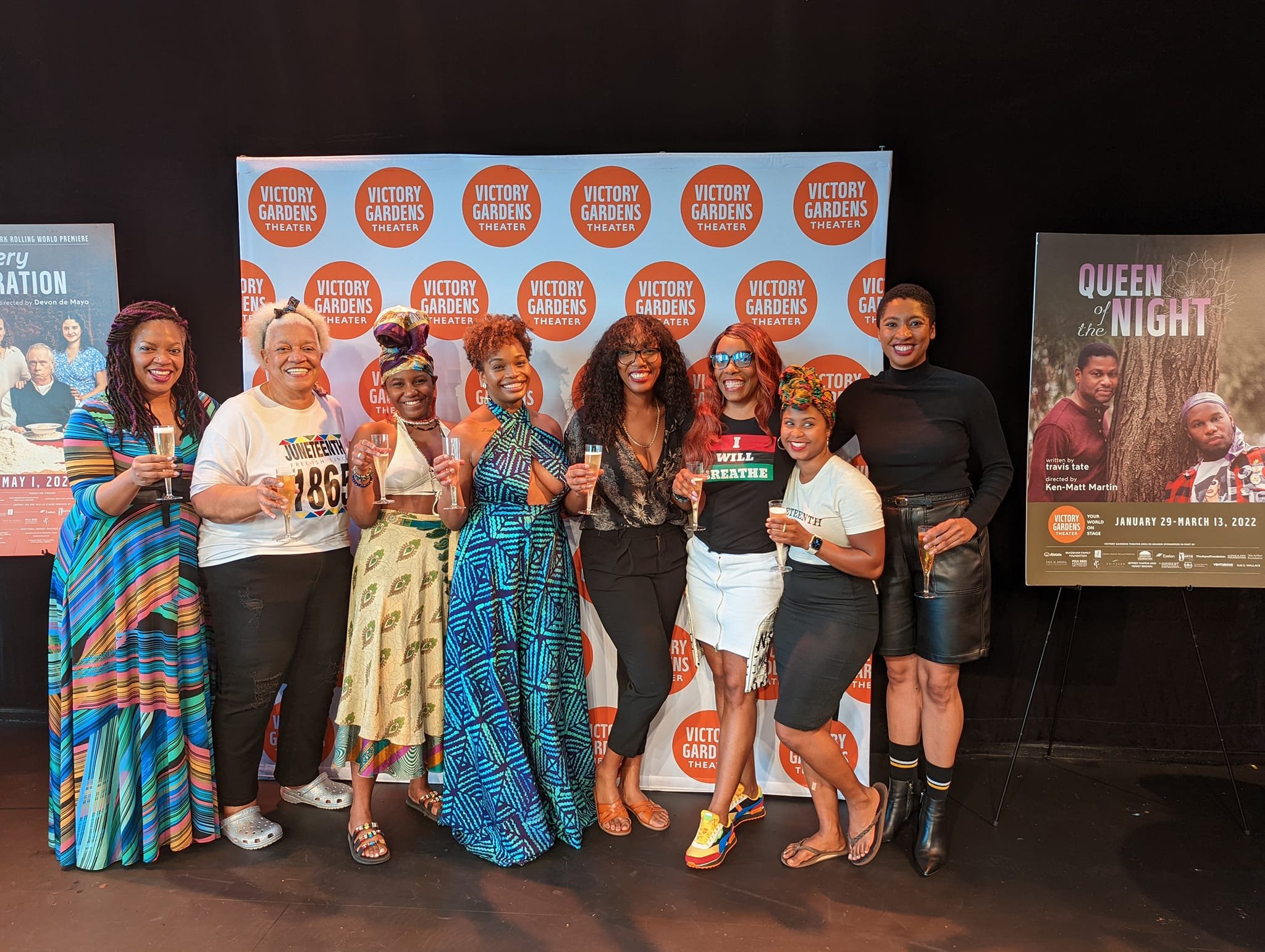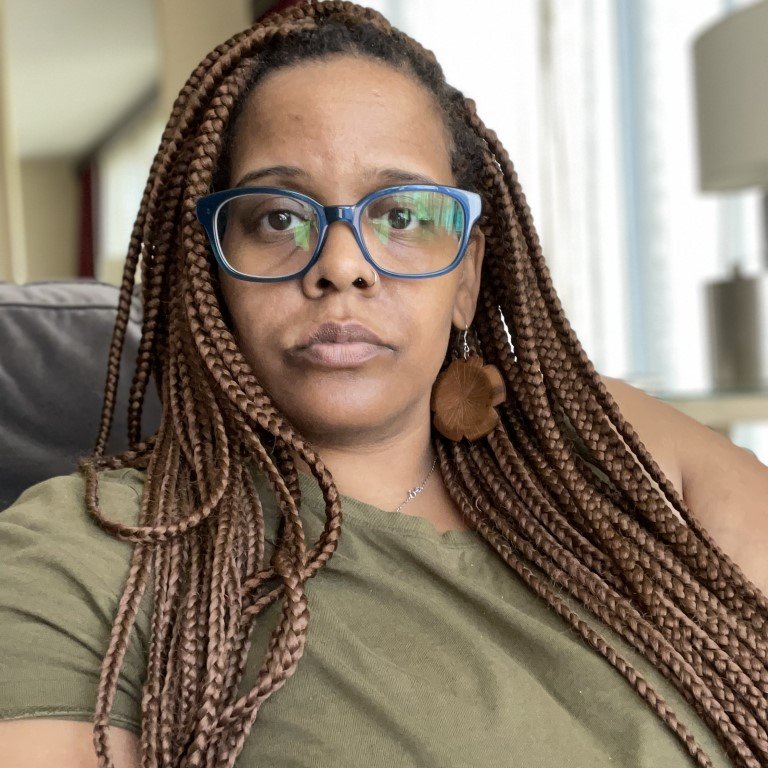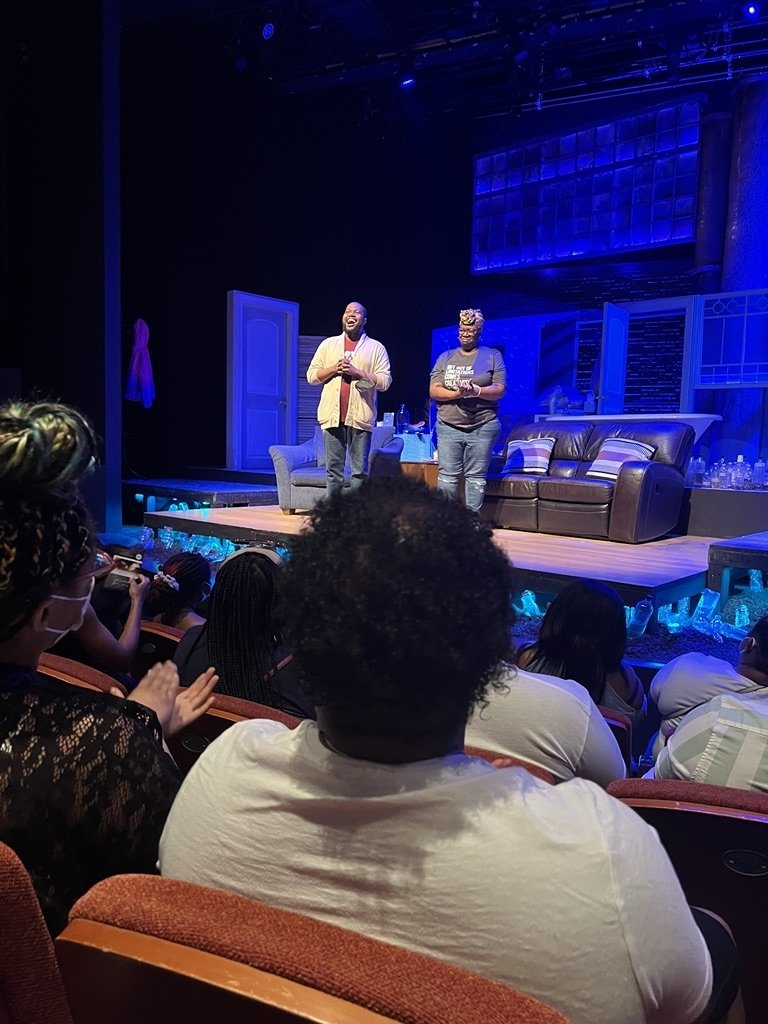For Those Doing The Work
The following post is my official statement from July 2022 about my departure from Victory Gardens. For further context you can read the August 2022 New York Times story about my departure HERE.
When I accepted the job of Victory Gardens’ Artistic Director in April 2021, I took a vow to center the artists and staff. My daily guiding questions were: What do they need? What resources don’t they have? How is this decision going to impact them?
Here is my question to you: What do the artists and the staff need right now?
It’s easy to celebrate a brilliant playwright or designer, the actor who makes you weep, the technical director who creates stage magic with a shoestring budget and a hammer. But being lauded and being valued are two very different things. American theaters are not built to center the needs of the artists or the staff. They are top-heavy institutions that cater to donors’ preferences, that twist themselves into pretzels to fit foundations’ latest giving priorities, and that give boards composed of professionals from other fields ultimate sway over how theater is made. This isn’t new info. Many will read this and say “duh.” Ask yourself: what have you done recently to change that?
When conflict arises, we throw theaters into chaos and risk the livelihoods of the staff and artists who call that theater home. Consultants are hired. Meetings are called. People resign. People get fired. And at the end of the day, artists and staff rarely have a seat at the table in determining what’s next. The artists are treated like children who need to be pacified, the staff like out-of-touch idealists who just want to complain. We make martyrs out of scapegoated leaders, while searching for a new savior figure to “fix” the mess.
It’s past time to break this cycle. Victory Gardens had a chance two years ago and here we are again.
I long for the day when being an artist doesn’t have to also mean being a makeshift activist. I wish we were talking about Marisa Carr’s Punk Rock Mix Tape Play or Keelay Gipson’s The Red and the Black. I wish we were still being inspired to action in Flint, Michigan by Erika Dickerson-Despenza’s cullud wattah, directed by Lili-Anne Brown. It would be so much more fun to be planning a multi-city production of Stacey Rose’s As Is or dreaming into Jess McLeod’s The Redline Project. I wish that Isaac Gómez, after being an employee, truth-teller, and major supporter of Victory Gardens for many years, could finally see a new work of theirs premiere on our stage. I wish I could welcome Jeffrey Sweet, James Sherman, and Gloria Bond Clunie back into the VG fold with our inaugural 20/50 Festival. I wish I was still able to see Sydney, Ireon, Bri, Dee Dee, and Ms. Renée on a walk backstage before their places call and wish them a good show–before circling back to the front-of-house staff and hearing about the auditions they’ve booked and the plays they want to direct.
Because of the ongoing crisis at Victory Gardens, I am no longer able to support these brilliant humans by producing their work, by negotiating an organization-wide pay equity plan, or by working for a healthier and more equitable way to create art. Right now, standing in solidarity means bringing to light the structures that decenter artists and staff in the theaters that would not run without them, and fighting for a change.
On June 30th, less than fourteen months after my hiring, the board informed me that I was being released from my Artistic Director contract at Victory Gardens with “cause.” I asked twice in the meeting what was the cause and was not given any. Instead, I was offered a minimum amount of severance and was asked to sign an NDA and give up all claims on future lawsuits. After I cited the lack of cause, the board offered more severance, but still with an NDA. I requested the inclusion of language allowing me to make “truthful statements” and was refused. I have received no disciplinary notices, formal or informal warnings, and have had no complaints filed against me or any documented infractions. I am declining the offer. It is vitally important that I be able to speak truthfully about the needs of the artists and staff.
I believe these actions were taken because the board of directors is afraid of fully embracing the transition and change that Victory Gardens needs. For a volunteer board still reeling from the trauma that stemmed from their troubled decision-making in 2020, the ongoing work of transformation–amidst all the challenges of a pandemic–can be overwhelming. What has been lost in all of this is that Victory Gardens has been in excellent hands and was poised to weather the financial uncertainty of the future. This is due largely to the incredible work of Acting Managing Director Roxanna Conner, who is departing after two years of selfless service and hard work under the most impossible of circumstances. She deserves the world and an environment to work in where she is fully appreciated for her contributions and countless gifts.
Most of the members of the Victory Gardens board are dedicated individuals who have made many sacrifices over many years for what they see as the good of the theater. And yet, they continue to operate in a vacuum, disregarding the expertise of the qualified leaders they hire and also discounting the wisdom of experienced non-profit professionals who are their peers on the board. My efforts to bring in mediators or outside consultants to find a healthier path forward were routinely put off. Whether or not they intend it as individuals, this board is enforcing a culture of top-down hierarchy and secrecy that is deeply at odds with the culture of transparency and accountability to stakeholders that we are trying to build as a staff.
I am therefore standing in solidarity with Victory Gardens’ artists and staff members and asking this board to resign–not as an act of malice, but as a means of giving this organization a chance to survive and thrive. The artists and staff are abundantly capable of taking up the transitional reins. Over the last week and independent of my involvement, they have assembled an alternate board slate and raised considerable funds in the form of pledges, all contingent on the current board’s resignation. They are building a transition plan with skilled facilitators and advisors volunteering their time. I ask that the board center the stated needs of the artists, and work with the artists and staff to resolve this amicably and leave.
I was humbled by the staff’s inclusion of my reinstatement as Artistic Director in their demands. To put a definitive statement on the record, I did not ask for that and had no prior knowledge that they were going to do so. With that said, after some deep reflection and consideration, I have decided that I need to take a break from non-profit theater administration and would not immediately return if asked. After enduring the whiplash of the last decade of my career, which has included three executive leadership positions at theaters of three very different sizes, encompassing high-level experience on both the general management and artistic side, I can say with confidence that I am burnt out. I may return one day; but for now I am going to focus on pursuing other opportunities.
“This is precisely the time when artists go to work. There is no time for despair, no place for self-pity, no need for silence, no room for fear. We speak, we write, we do language. That is how civilizations heal.”
I would like for this to be my definitive public statement on this situation. In truth, I am hopeful that everyone can see our current predicament not as one institution’s dysfunction, but as an example of the industry-wide need to seriously reevaluate our models and modes of operating. The Victory Gardens board plunged artists/staff into chaos in the middle of a run of a play and two weeks before a workshop that had been scheduled for a year. That timing, not to mention the decisions made and the manner of their communication, showed a lack of care and a disregard for how theater workers' lives function. That leads to unseen, unnoticed staff neglect. That leads to leadership burnout. This must stop.
Despite me naming this truth, I fully understand that board members’ generosity makes the art-making possible. What if boards treated staff and artists more equitably? What if boards operated with less fear and distrust of one another and an increased sense of transparency? What if we truly embraced a spirit of abundance instead of reinforcing a culture of scarcity? If everyone involved chooses to center the needs of the staff and artists this time, then maybe the Chicago theater community and Victory Gardens can continue to be a shining example of what’s possible in the American Theater. I’m choosing to stand with them. I hope others will join me.
Statement Copy Edited by Kat Zuikaitis.






